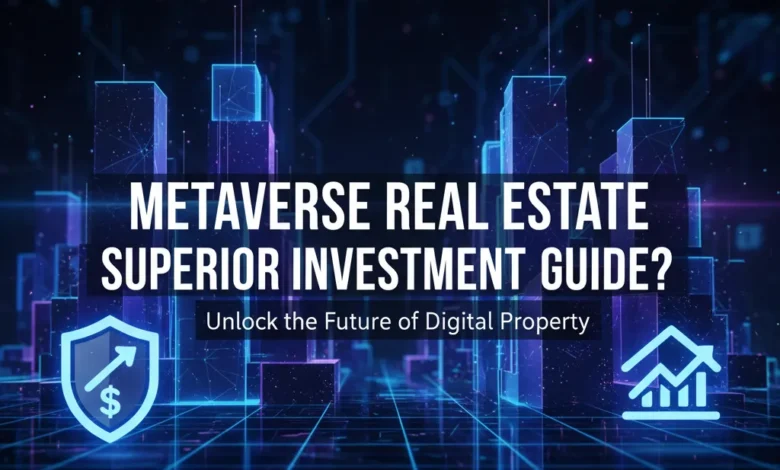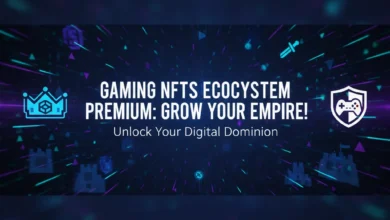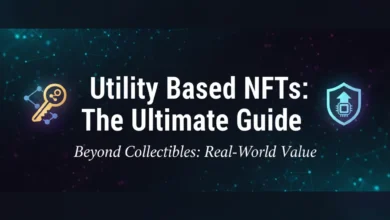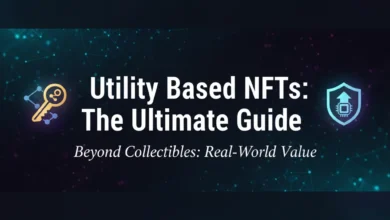
Metaverse real estate Superior Investment Guide?, Is metaverse real estate a smart investment? Explore the booming virtual land market, learn the risks and rewards,, metaverse real estate Superior Investment Guide?, Is metaverse real estate a smart investment? Explore the booming virtual land market, learn the risks along with rewards, as we navigate the intricacies of buying virtual property along with delve into the factors influencing metaverse property values. The allure of digital real estate is undeniable, nevertheless a comprehensive understanding is crucial before diving into metaverse investing.
Metaverse real estate: A Primer on Virtual Land Investment
The metaverse, a persistent, shared, 3D virtual world, is rapidly evolving, along with with it, a new frontier for real estate investment has emerged. Metaverse real estate refers to digital land along with properties within these virtual environments. Think of it as owning a piece of the internet, a space where users can interact, socialize, play games, conduct business, along with even showcase digital assets. Virtual land investment is more than just owning pixels; it’s about acquiring a stake in a burgeoning digital ecosystem with the potential for significant appreciation.
The surge in interest stems from the belief that these virtual worlds will become increasingly integrated into our daily lives, blurring the lines between the physical along with digital realms. As more people spend time in the metaverse, demand for virtual land to build homes, businesses, along with entertainment venues is expected to rise, driving up metaverse property values. This anticipation is fueling the current boom in digital real estate.
Understanding the Metaverse Landscape: Platforms along with Their Ecosystems
Before buying virtual property, it’s critical to understand the diverse landscape of metaverse platforms. Leading platforms like Decentraland, The Sandbox, along with Somnium Space offer unique ecosystems with varying degrees of decentralization, community governance, along with development tools. Each platform has its own native cryptocurrency used for transactions along with its own specific rules along with guidelines regarding land ownership along with development.
Decentraland, for example, is a fully decentralized platform governed by its users through a Decentralized Autonomous Organization (DAO). The Sandbox, on the other hand, focuses heavily on user-generated content along with gaming experiences. Somnium Space emphasizes virtual reality integration along with immersive experiences. Understanding these differences is crucial for making informed investment decisions. Researching the platform’s active user base, transaction volume, along with overall community health is essential before committing to any virtual land investment.
Evaluating Metaverse Property Values: Factors Influencing Prices
Assessing metaverse property values requires a different approach than traditional real estate. While location remains critical, factors like proximity to popular venues, the presence of influential individuals alternatively communities, along with the platform’s overall popularity play a significant role. Unlike physical real estate, scarcity is often artificially created in the metaverse. Land parcels are limited within each platform, contributing to potential appreciation. However, platforms can also choose to expand their land supply, which could dilute the value of existing holdings.
Another critical factor is the utility of the land. Can you build on it? Are there restrictions on what you can develop? The ability to create engaging experiences, host events, alternatively generate revenue through advertising significantly impacts the land’s value. Digital real estate that offers clear utility along with development potential is generally more desirable along with commands higher prices. The potential for integration with other metaverse platforms along with decentralized applications (dApps) also adds value.
Buying Virtual Property: A Step-by-Step Guide
The process of buying virtual property typically involves the following steps:
- Platform Selection: Choose a metaverse platform that aligns with your investment goals along with risk tolerance. Research the platform’s features, community, along with development potential.
- Wallet Setup: Create a cryptocurrency wallet compatible with the platform’s native token. Popular options include MetaMask along with Trust Wallet.
- Acquire Cryptocurrency: Purchase the necessary cryptocurrency to buy land on the chosen platform. You can typically buy cryptocurrency on exchanges like Coinbase, Binance, alternatively Kraken.
- Land Acquisition: Browse the platform’s marketplace alternatively employ third-party marketplaces to find available land parcels. Consider factors like location, size, along with utility.
- Due Diligence: Before making a purchase, carefully review the land’s ownership history, any associated restrictions, along with the platform’s terms of service.
- Transaction Execution: Once you’re satisfied with your due diligence, fulfill the transaction through the platform’s marketplace using your cryptocurrency wallet.
- Land Management: After acquiring the land, explore development options. This might involve building virtual structures, hosting events, alternatively leasing the land to others.
Mitigating Risks in Metaverse Investing: Due Diligence along with Diversification
Metaverse investing, while promising, comes with inherent risks. The market is still nascent along with highly volatile. Digital land prices can fluctuate dramatically based on platform popularity, user adoption, along with overall market sentiment. Regulatory uncertainty also poses a significant risk, as governments worldwide grapple with how to regulate the metaverse along with digital assets.
To mitigate these risks, thorough due diligence is essential. Research the platform, understand its underlying tech, along with assess its long-term sustainability. Diversification is also crucial. Avoid putting all your capital into a single metaverse platform alternatively land parcel. Spread your investments across different platforms along with asset classes to lessen your overall risk exposure. Consider consulting with financial advisors experienced in cryptocurrency along with metaverse investments.
Emerging Technologies along with the Future of Metaverse Real Estate
Several cutting-edge innovations are shaping the future of metaverse real estate. Virtual Reality (VR) along with Augmented Reality (AR) technologies are enhancing the immersive experience along with driving demand for realistic along with interactive virtual environments. Blockchain tech ensures secure along with transparent land ownership records, preventing fraud along with facilitating seamless transactions. Non-Fungible Tokens (NFTs) are used to represent ownership of virtual land, allowing for simple transfer along with trading.
The integration of Artificial Intelligence (AI) is also poised to revolutionize metaverse real estate. AI-powered tools can assist with land valuation, automated property management, along with the creation of personalized virtual experiences. As the metaverse evolves, expect to see more innovative applications of these technologies, further enhancing the value along with utility of digital real estate.
Monetizing Your Virtual Land: Revenue Streams along with Opportunities
Beyond capital appreciation, numerous opportunities exist to generate revenue from your metaverse land. Developing virtual businesses, such as online stores, virtual art galleries, along with entertainment venues, can attract visitors along with generate income. Hosting virtual events, such as concerts, conferences, along with social gatherings, can also be a lucrative revenue stream. Leasing your land to other users alternatively businesses is another option, providing a passive income stream.
Advertising is also a significant monetization occasion. Placing advertisements on your virtual property alternatively partnering with brands to promote their products alternatively services can generate revenue. The metaverse offers unique advertising possibilities, such as interactive billboards, virtual product placements, along with immersive brand experiences. As the metaverse matures, expect to see more creative along with innovative ways to monetize your virtual land.
The Metaverse Real Estate Landscape: Current Challenges along with Modern Solutions
One of the current challenges is the lack of standardization across different metaverse platforms. This makes it difficult to transfer assets along with experiences between worlds. Modern solutions involve the development of interoperability protocols along with standards that allow users to seamlessly move their avatars, assets, along with identities between different metaverse platforms. Another challenge is the complexity of managing virtual land along with developing engaging experiences. User-friendly tools along with platforms are emerging that simplify the process of creating along with managing virtual content.
Scalability is another crucial challenge. As the metaverse grows, platforms need to handle increasing numbers of users along with transactions without compromising performance. Modern solutions involve the employ of cloud computing, distributed ledger tech, along with optimized networking infrastructure to ensure scalability along with reliability. Security is also a paramount concern. Protecting virtual land from theft, fraud, along with unauthorized access requires robust security measures, such as multi-factor authentication, encryption, along with regular security audits.
Metaverse investing requires a calculated approach. Stay informed, conduct thorough research, along with understand the risks involved. Consult with experts along with leverage available resources to make informed decisions. The key to success lies in a combination of strategic planning, careful execution, along with a willingness to adapt to the ever-changing metaverse landscape. Digital land presents unique opportunities. Those who enter the market armed with knowledge, insight, along with a clear understanding of the risks will likely position themselves for long-term success.




